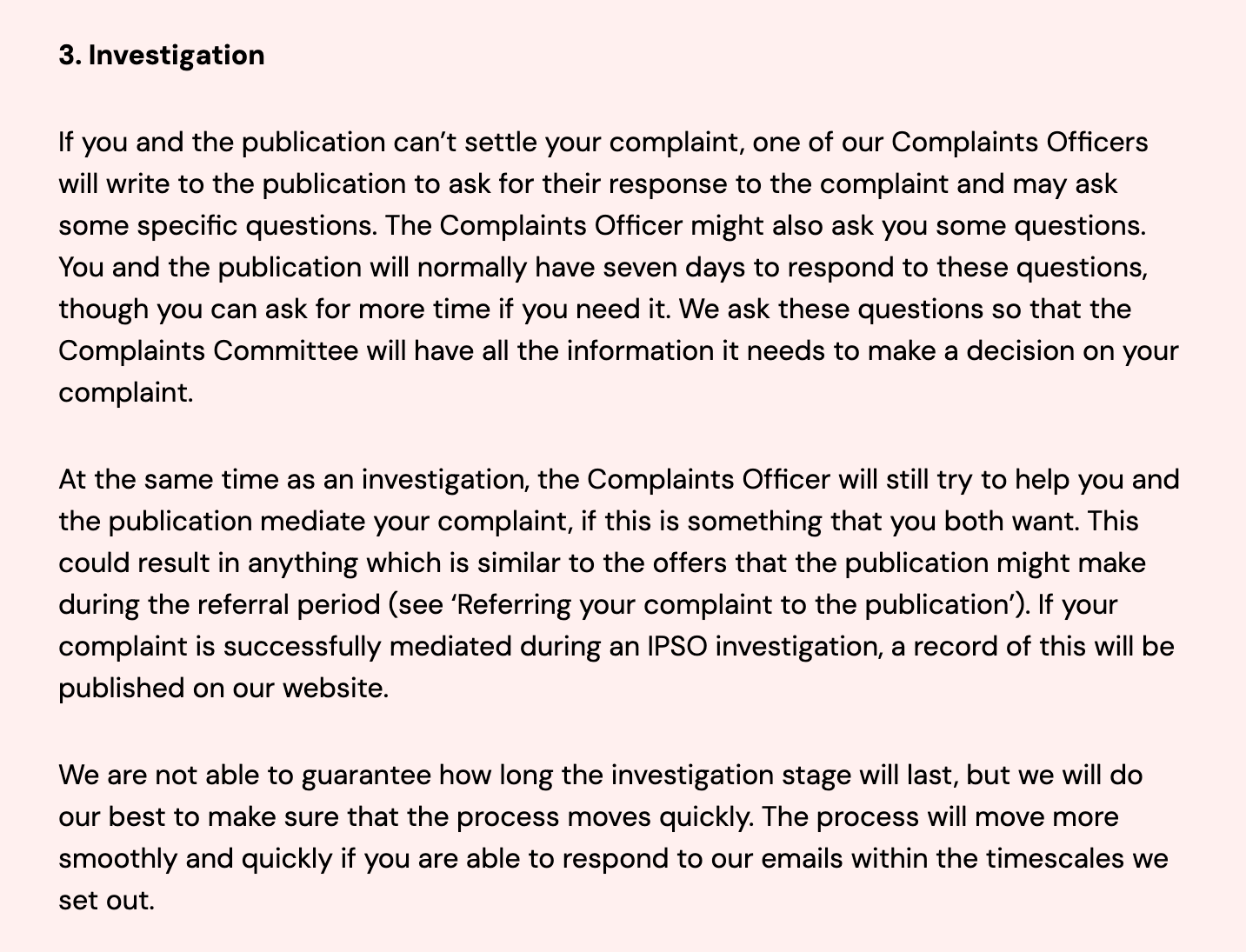We wrote a blog about how best to complain to the BBC - and keep complaining when you get fobbed off. This guide is about IPSO and complaints about newspapers.
Complaints are vital. They’re always passed back to the reporters and editors, and the regulators can use complaints as a guide to areas of public concern. Ofcom is the statutory regulator for broadcasters - the Independent Press Standards Organisation is the independent regulator for newspapers, including online.
Here’s the IPSO complaints form. Don’t let venting on social media be the end of it. Complain - even about local newspapers, however small. And it doesn’t just have to be about news stories. You can complain to IPSO about
articles
images and videos
readers’ letters
Social media posts
Podcasts
user comments on websites which the publication has moderated, or had the opportunity to moderate
the behaviour of journalists.
Do I have to complain to the publication first?
IPSO does recommend that, but no - you can complain direct to IPSO. However if you haven’t complained first to the newspaper, IPSO will send your complaint back and give them about a month to manage it before asking if you want to progress. It’s not until the editor has had a chance to respond that IPSO will begin an investigation.
This means that if you complain direct to a publication, you should take pains to point out specifically where (you think) it breaches IPSO’s Code of Practice.
Not every publication is signed up to IPSO. The list of those it does regulate is here - it’s long, there are more than 1,500 print titles and more than 1,100 online titles - but you can search alphabetically. It regulates most national newspapers, but not the Financial Times, Independent or Guardian.
When complaining to IPSO you must refer back to its Editors’ Code of Practice and explain which clause you believe it has breached. This is vital. It’s an enormously comprehensive code with clauses across accuracy, discrimination, privacy, intrusion - 16 in all. Something in there for everyone.
IPSO also lays out ‘who can complain’. It’s not very restrictive, but IPSO does take into account those who are more directly affected. It’s important - if you can show you’re directly affected in some way, then do so. You can also complain as a representative of a group. There isn’t a specific time limit, but it’s best to get your complaint in within four months.
IPSO has specific sex and gender guidance. It’s non-binding, and you can refer to it in your complaint, but it’s more important to explain why and how the issue your complaining about is a breach of the Editor’s Code of Practice. Be very clear and number your clauses - eg ‘this is a breach of Clause 1 - Accuracy - because’ etc.
It’s an excellent idea to read past complaints and look at how IPSO has come to its decisions.
Once you’ve complained you’ll get an acknowledgement within three days (if you don’t, then email inquiries@ipso.co.uk) and after about two weeks will be told whether or not IPSO is going to investigate your complaint.
So there are in effect two stages:
IPSO decides whether it’s even possible for a breach of the code to have taken place.
If it does decide it’s possible, it will move to the investigation stage to uncover whether or not a breach did in fact take place
If they decide not to investigate, you can appeal (but you have to do that within seven days).
The IPSO complaints process can be more ‘interactive’ than that of the BBC. All this will take time but don’t give up. IPSO will take it as seriously as you do.
Note - even if IPSO decides there’s no possible breach of its Code, it will still send a copy of the complaint to the publication. And if there is an investigation, and your complaint is rejected, you can still appeal for it to be reviewed. That would go to an independent complaints reviewer.
If you’re in any doubt about any of these steps, before or after complaining, you can phone them and they’ll help.
Remember this: IPSO use their complaints experience and data to track and identify areas of concern. Your complaint will help them do this.




